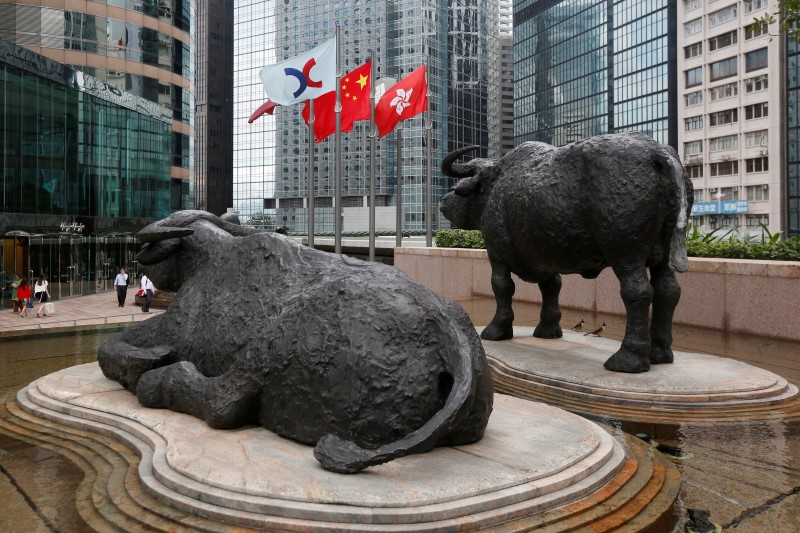This post was originally published on this site
https://i-invdn-com.investing.com/news/LYNXNPEC5E1KQ_M.jpg
Markets were cautious ahead of key Chinese economic data due this week, which is expected to shed more light on a slowing post-COVID recovery in Asia’s largest economy.
Chinese stocks retreated on Thursday, also coming under pressure from reports that the U.S. was planning more restrictions on semiconductor exports to the country. This also weighed on other technology-heavy bourses, such as South Korea’s KOSPI and the Taiwan Weighted index.
Broader regional markets tracked some overnight strength on Wall Street. But gains were largely countered by a warning from Federal Reserve Chair Jerome Powell that U.S. interest rates are likely to rise further.
Regional trading volumes were also somewhat limited on account of trading holidays in Singapore, India, Indonesia, and Malaysia.
Japanese stocks remained the key outliers, with the Nikkei 225 rising 0.5% and coming close to a fresh 33-year high. The broader TOPIX was flat, but also hovered just below 33-year peaks.
Data on Thursday showed that Japanese retail sales grew more than expected in May, while April’s reading was also revised higher as consumer spending remained resilient despite pressure from high inflation.
Signs of resilience in the Japanese economy, coupled with a dovish outlook on the Bank of Japan, were the two biggest drivers of a Japanese stock market rally over the past two months.
But recent data showed that Japanese inflation remained sticky through May, pushing up concerns that the BOJ may eventually tighten policy this year.
Strong retail sales data also pushed up Australia’s ASX 200 index, although concerns over more interest rate hikes by the Reserve Bank kept gains in check. The bank is set to meet next week to decide on interest rates.
China’s blue-chip Shanghai Shenzhen CSI 300 index fell 0.6%, while the Shanghai Composite fell 0.3% amid continued uncertainty over a slowing economic rebound in the country.
Losses in Chinese stocks spilled over into Hong Kong, with the Hang Seng index losing 1.4% and vastly lagging its regional peers. Heavyweight technology stocks saw extended declines amid reports of new U.S. export curbs on chips, which could severely limit their artificial intelligence aspirations.
Focus is now on purchasing managers’ index data for June, due on Friday, which is expected to show that manufacturing activity slowed further during the month, while service sector growth contracted.

